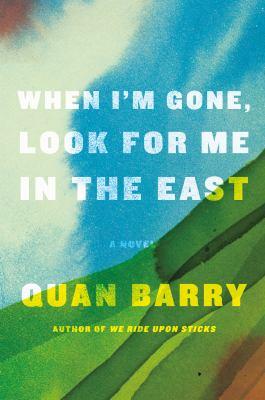
When I'm gone, look for me in the East
Tasked with finding the reincarnation of a great lama somewhere in the vast Mongolian landscape, the young monk Chuluun seeks the help of his identical twin, Mun, who was recognized as a reincarnation himself as a child, but has since renounced their once shared monastic life. Harking back to her vivid and magical first novel set in Vietnam, Quan Barry carries us across a landscape as unforgiving as it is beautiful and culturally varied, from the stark Gobi Desert to the ancient capital of Chinggis Khan. As their country stretches before them, questions of the immortal soul, along with more earthly matters of love, sex, and brotherhood, haunt the twins, who can hear each other's thoughts. Are our lives our own, or do we belong to something larger? When I'm Gone is a stunningly far-flung examination of our individual struggle to retain faith and discover meaning in a fast-changing world, and a paean to Buddhist acceptance of what simply is.
Available Copies by Location
| Location | |
|---|---|
| Community Centre | Available |
Browse Related Items
- ISBN: 9781524748111
- Physical Description 302 pages : illustrations, map ; 22 cm
- Edition First edition.
- Publisher [Place of publication not identified] : [publisher not identified], 2022.
Content descriptions
| Bibliography, etc. Note: | Includes bibliographical references. |
Additional Information



